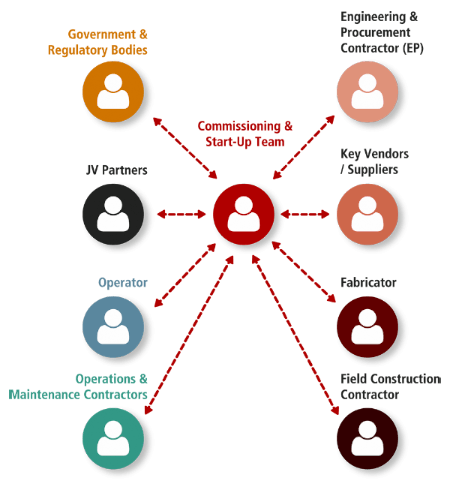
Rescuing Projects – Interface Management & Recovery Schedules
If you’ve ever been involved in a major engineering and construction project that was in trouble, you are fully aware of the stress levels that come with correcting them. Defining the root cause(s) and determining responsibility is necessary, but the project still needs to get to the finish line.
Defining and executing a recovery schedule is key to saving projects that have gone astray. The recovery schedule’s purpose is to change the sequencing of events, and/or duration of activities, in order to return the current project schedule completion date to the planned completion date; or in some cases, even provide for an accelerated date. Recovery schedules should focus on the critical path and define what needs to be completed; including testing, commissioning, and handover.
The Recovery Schedule and Interface Management
If you haven’t been practising the discipline of interface management (IM), you may now want to inject interface management principles and procedures. A recovery schedule redefines who needs to do what and when it needs to be completed and interface management supports this further through the identification of roles and responsibilities across multiple interfacing stakeholders. Interface points and interface agreements are used to facilitate communication and collaboration, ensuring all parties have a clear understanding of where interfaces exist and what they are responsible for completing.
As with the recovery schedule, interface management focuses on the critical path. Interface management best practices identify high-risk interfaces and ensure the tasks associated remain on track. Interface management is another line of defense – giving your project an added and necessary level of support to mitigate risk and ensure project success.
The difference between implementing interface management at the outset of a project and a recovery-schedule driven interface management plan is the experience and/or lessons learned that the project has already captured and can use. Working relationships already exist, remaining work is understood (or should be), and the performance, up to this point, of all parties is known. With this information, you can look back and see if there are some identifiable causes of the delay and if there is something that should be corrected. It is important at this stage to meet with all stakeholders, make sure they agree to the revised plan, and get their buy-in.
With a recovery, you are likely working under an accelerated schedule and the key to getting this project back on track becomes better managing the complexity and monitoring progress in real time. Interface management is a practice that can be used to manage the communications and commitments amongst the diverse players in the recovery process. Manually managing the complexity during this process, not to mention working under tighter deadlines, can be unwieldy and expensive at best but, more importantly, it’s unreliable and erratic. Hence the need for project interface management software. Using a proper software system will arm your project team with the foundations for success.
Benefits Interface Management Brings to a Recovery
Here is what interface management software will offer you:
- Early-warning indicators using real-time dashboards and reports
- Ability to manage high-risk interfaces through schedule integration
- Real-time collaboration with the interfacing parties and other key stakeholders
- RACI-driven task assignments and reminders using automated workflows
- Automated email notifications
- Complete audit trail
- Action-tracking register related to project interfaces
- Integration with document management for tracking of interface deliverables
Recovery schedules are never anticipated when projects kick-off, but the failure rate of major capital projects is well documented. Avoiding a second failure in the recovery stage is crucial. It is never too late for interface management. If you need help aligning your interfaces to the project recovery schedule, give us a call!





